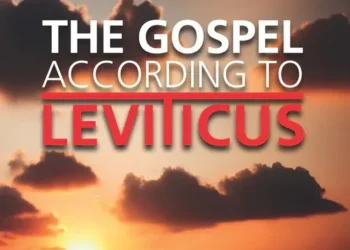Cllr Lucius Vellacott is a district councillor in East Cambridgeshire
Having Conservatives in office is rarer now than it was. But we still do incredible work.
May’s elections were both devastating and hugely successful in Cambridgeshire. After a decent campaign, we still went down to 10 councillors and lost some seriously hardworking local champions. Despite a drop in the Lib Dem vote share, we didn’t make the progress we’d envisaged in light of the number of people turning to Reform for an answer. But on the same night, Paul Bristow was elected Mayor with a margin of over 10,000 votes. In some districts, he won in every ward.
There are two reasons for this, in my mind. Firstly, Paul has energy. He will talk passionately to anyone about anything. Much to the dismay of some campaigners, we did not check the voting intentions before knocking on most doors. This was not the logical approach, but against my preconceptions, it was the right one.
The shift in our politics in recent times gives us a blank slate for new conversations, and the winner of this impasse will ultimately be the one with the answers that people genuinely believe. That is what Paul offers, and he’s already delivering on it by saving bus routes and ending the war on the motorist. Most of Reform’s support is not loyal – not loyal at all. We just need to show them we’re back.
Secondly, he is a legend on social media and we paid good money to advertise on it. We have too many councillors who have never touched a Facebook post. If we want to hold seats, this must change. It’s one thing the Liberal Democrats in my area haven’t yet capitalised on.
We reach tens of thousands online. We knock on some of their doors. All the while, well-thought-out policy is being generated at the top. It is a winning formula if we can deliver it on the ground.
In East Cambridgeshire, we are faced with existential threats to the good work we have done, which necessitates us carrying on this fight. Our near-silent Lib Dem MP is not going to do it from her (initially) unlawfully converted office in Ely owned by a company run by Lib Dem campaigners (!). And the current Labour Government is the first in my lifetime to be completely comfortable to lie about what they are doing to rural areas: the claim that the Family Farm Tax will raise revenue to support farmers. Or that Local Government Reorganisation which removes small efficient rural councils and hikes taxation will provide value for money, empower communities, and give them a stronger voice. And then, above all else, that the Planning and Infrastructure bill which removes councillors from smaller-scale decision-making will improve local democracy and efficient development. (Now we’ve learned of amendments which empower unelected bodies even more).
At East Cambs District Council I presented a motion to make a strong response against the Planning and Infrastructure Bill and to keep local representatives closely involved. The Government don’t realise that their definition of minor (Tier A) development – nine houses or a battery storage unit – could be highly impactful in a tiny village like Wicken or Upware.
We continue to work hard to keep communities involved wherever the new law allows. We also continue to provide support to parishes creating Neighbourhood Plans, the national funding for which has of course been revoked.
I am pro-growth. It is how we will get proper infrastructure investment, grow our economy, and have enough homes for my generation to live in.
But I am not pro-growth at all costs. Communities should get to decide, within reasonable boundaries, what kind of development they get (ie: house sizes, quality and affordability), where it goes (ie: not on the green belt) and what is needed to accompany it (ie: proper, sustainable infrastructure and community investment).
This is not something national government can responsibly decide for us, and I am pleased to see that Conservative MPs recognise that. We need good housing in the right places. Indeed, the choice is never between housing or no housing, but between good or bad development.
We have a lot that’s worth fighting for, and it’s safe to assume that nobody else is going to take the time and effort to form a plan to fight for it. So let’s use good examples from Conservative local government, and apply them to national policy. We represent value for money, strong community investment, and, above all, the focus on helping our residents to help themselves wherever we can.
All that remains is to play the cards we are dealt by government – if necessary, in the most provocative and obstructive way possible – to get the best deal for the residents who trusted us to serve them.





![ICE Arrests Illegal Alien Influencer During Her Livestream in Los Angeles: ‘You Bet We Did’ [WATCH]](https://www.right2024.com/wp-content/uploads/2025/08/ICE-Arrests-Illegal-Alien-Influencer-During-Her-Livestream-in-Los-350x250.jpg)
![Gavin Newsom Threatens to 'Punch These Sons of B*thces in the Mouth' [WATCH]](https://www.right2024.com/wp-content/uploads/2025/08/Gavin-Newsom-Threatens-to-Punch-These-Sons-of-Bthces-in-350x250.jpg)








